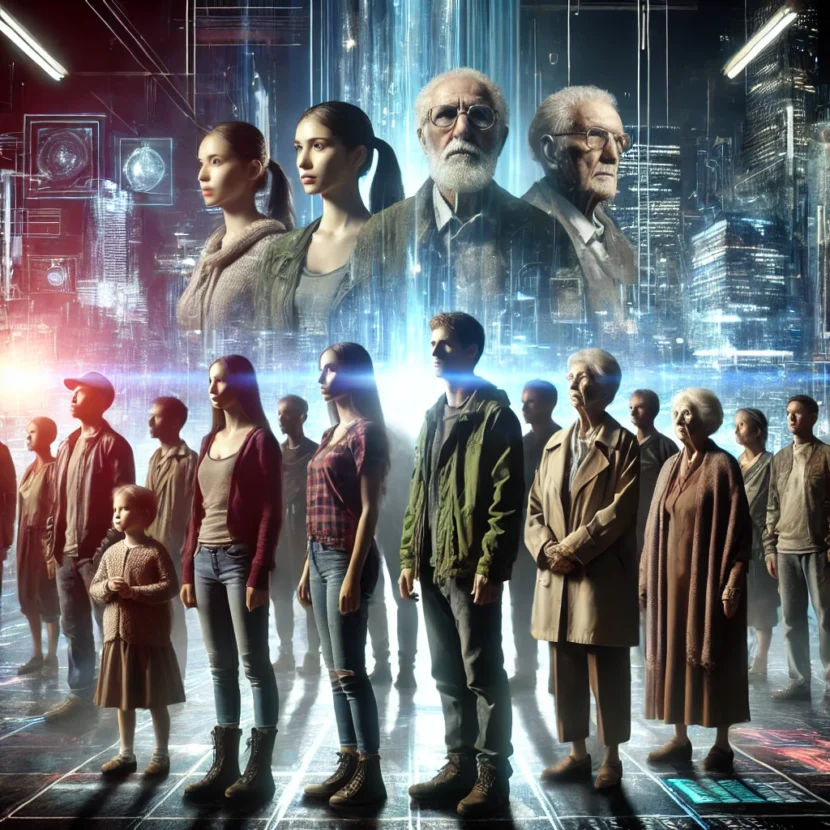The Curse and Gift of a Connected World
“The phone-based life makes it difficult for people to be fully present with others when they are with others, and to sit silently with themselves when they are alone.” — Jonathan Haidt, The Anxious Generation
Every generation is shaped by the environment in which it grows up. The Baby Boomers experienced post-war prosperity and rigid structures. Meanwhile, Gen X thrived in rebellion against authority. Millennials became the bridge between the analog and digital worlds. Then came Gen Z, the first generation to enter adolescence with a supercomputer in their pockets. This shift has fundamentally altered their social, emotional, and psychological development.
As a result, Gen Z possesses strengths that older generations struggle to match. However, they also face weaknesses that can be crippling. Understanding both—and knowing how to adapt—determines who will rise above the generational chaos and who will fall victim to it.
Generation Z (Born 1997-2012)
Strengths:
- Digital Natives with Technological Proficiency: Growing up in the digital age, Gen Z exhibits a natural aptitude for technology. A study found that 65% of Gen Zers describe themselves as ready and willing to learn new digital tools (Cake.com).
- Advocates for Mental Health Awareness: Unlike previous generations, Gen Z is notably open about mental health issues. Research indicates that 92% of Gen Z graduates are willing to discuss mental health at work, reflecting a shift towards destigmatizing these conversations (Cake.com).
- Entrepreneurial Spirit and Creativity: With access to vast online resources, Gen Z demonstrates strong entrepreneurial tendencies. Surveys reveal that 70% of managers appreciate Gen Z’s creativity and adaptability in the workplace (Cangrade.com).
Weaknesses:
- Mental Health Challenges: A significant portion of Gen Z faces mental health struggles. A survey reported that 65% of Gen Z young adults have experienced at least one mental health problem in the past two years (AECF.org).
- Reduced Practical Life Skills: Many Gen Z members lack basic life skills. A recent poll revealed that nearly 25% of Gen Zers admitted they couldn’t change a lightbulb, often citing safety concerns (NYPost.com).
- Workplace Stress and Burnout: Young professionals in Gen Z report high levels of stress. In the UK, young workers are missing up to one workday per week due to mental health issues (TheTimes.co.uk).
How to Counter Weaknesses:
- Enhance Mental Health Support: Employers should offer resources like counseling and stress management workshops.
- Develop Practical Life Skills: Schools and workplaces can introduce workshops focusing on home maintenance and financial literacy.
- Promote Work-Life Balance: Implementing flexible work arrangements can help reduce burnout.
Millennials (Born 1981-1996)
Strengths:
- Tech-Savvy and Adaptable: Millennials are proficient with technology and quick to embrace change.
- Value-Driven and Purpose-Oriented: They prioritize meaningful work and seek employers whose values align with their own.
- Collaborative and Team-Oriented: This generation thrives in team settings and values open communication.
Weaknesses:
- Economic Instability and Debt: Many Millennials struggle with financial challenges, including student loan debt.
- Delayed Financial Milestones: Economic factors have led Millennials to postpone purchasing homes or starting families.
- Over-Reliance on Technology: A heavy dependence on digital solutions sometimes hinders face-to-face interactions.
How to Counter Weaknesses:
- Prioritize Financial Literacy: Companies and institutions should offer workshops on budgeting and debt management.
- Encourage Work-Life Balance: Flexible work arrangements help prevent burnout and increase productivity.
- Foster In-Person Connections: Team-building events and in-person meetings can strengthen workplace relationships.
Generation X (Born 1965-1980)
Strengths:
- Independent and Resourceful: Often referred to as the “latchkey generation,” Gen Xers are self-reliant problem-solvers.
- Entrepreneurial Mindset: Research shows that 55% of startup founders come from this generation .
- Adaptable to Change: Having witnessed significant technological and societal shifts, Gen Xers are flexible and resilient.
Weaknesses:
- Skepticism Towards Authority: Gen Xers may exhibit distrust toward leadership and new policies.
- Struggles with Work-Life Balance: Many juggle caregiving responsibilities for both children and aging parents.
- Lagging Digital Adoption: Some Gen Xers face challenges adapting to new technologies.
How to Counter Weaknesses:
- Embrace Digital Learning: Online courses can help bridge the technology gap.
- Delegate and Prioritize Work-Life Balance: Time management strategies can reduce stress and improve efficiency.
- Leverage Experience to Mentor Others: Providing guidance to younger generations fosters stronger intergenerational relationships.
Baby Boomers (Born 1946-1964)
Strengths:
- Strong Work Ethic: Boomers are known for their dedication and reliability in the workplace.
- Financial Stability: Many benefited from stable career paths and homeownership.
- Experienced Decision-Makers: Their long-term perspective aids in strategic thinking and leadership.
Weaknesses:
- Struggles with Rapid Technological Changes: Adapting to digital tools can be challenging for some.
- Rigid Work Expectations: Many struggle with evolving workplace norms, such as remote work and flexible schedules.
- Limited Focus on Mental Health Awareness: Historically, this generation placed less emphasis on emotional well-being.
How to Counter Weaknesses:
- Stay Open to Change: Learning from younger generations can help Boomers adapt to modern work environments.
- Improve Digital Literacy: Hands-on training in workplace technology tools can bridge the gap.
- Develop Emotional Intelligence: Prioritizing stronger professional and personal relationships enhances collaboration.
The Way Forward: Strength in Synergy
Each generation is conditioned by its unique environment, but the future belongs to those who integrate the best from each. The wise will absorb the technological fluency of Gen Z, the collaborative drive of Millennials, the independence of Gen X, and the discipline of the Boomers.
This is not about generational warfare—it’s about generational strategy. A fool will mock the weaknesses of another generation; the wise will extract lessons and build a personal empire from them.
Stay sharp. Stay adaptable. Stay ahead.







